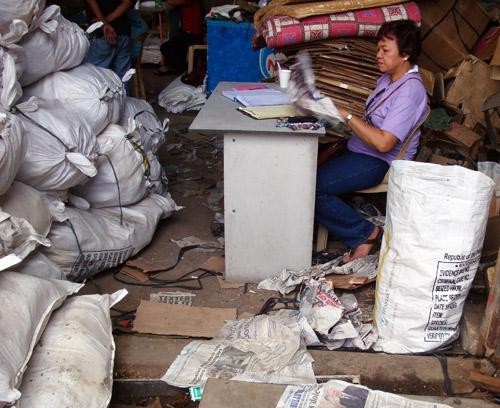
March 2015—Don’t ever pass up a chance to watch a slideshow featuring Josefina De Leon. The camera follows her along rural roads and into back streets of cities across the Philippines, where she and her colleagues pursue traffickers and make major busts of illegally traded wildlife.
For the past 13 years, De Leon has been the tireless leader at the forefront of the Philippines’ fight to protect its wildlife and natural resources. She is the chief of the Philippines Department of Environment and Natural Resources' Wildlife Resources Division. Long title, tall order.
She is also a well-known television news personality whose coverage has ranged from her role in saving captured crocodiles and making them a huge draw for ecotourists, to leading raids and announcing seizures of protected wildlife and timber.
“I grew up in a poor family, with parents who were not able to finish even a primary education,” she said. “But having farmer parents had exposed me to the beauty of nature.”
USAID has been actively working to stop illegal wildlife trade in Asia since 2005. Through the Asia's Regional Response to Endangered Species Trafficking program, USAID addresses wildlife trafficking by reducing consumer demand through awareness campaigns, strengthening law enforcement, and improving regional cooperation and anti-trafficking networks.
The Philippines is a global biodiversity bonanza, but species found here are under constant threat. The 7,100 islands that make up the archipelago have lost over half of their forest cover in the past century. Violent criminal gangs that traffic in protected plants, timber and wildlife have killed more than 20 of the country’s 2,000 wildlife rangers in the past three years. Limited resources and ongoing corruption have further complicated efforts to manage protected natural resources.
De Leon’s steely resolve and leadership have helped save her country’s rich and diverse wildlife. Her contributions have led to at least 30 national policies, rules and regulations, four conservation plans and eight publications on wildlife conservation and management. She was instrumental in setting up the Philippines’ National Wildlife Research and Rescue Center and has led a multiagency approach to combat illegal wildlife trade.
It was De Leon who pushed hard for the Philippines to be the first country in Asia to crush its 5-ton seized ivory stockpile valued at over $10 million. The success of this June 2013 event, which was supported by USAID through local partners and drew global news interest, inspired other countries to hold similar crush events of their own: The United States, China, France, Tanzania, Chad and Togo are making plans or have done the same.
“This incredible woman should be recognized widely for her passion and commitment to counter wildlife trafficking,” said USAID natural resources officer Danielle Tedesco. “She is a true conservation champion.”
Beyond protecting wildlife, De Leon also believes it is important to educate young girls in particular on how they can be better stewards of their natural resources. “People at a young age should be taught to care for the environment and the natural resources that sustain life. Leaders are not born. They are developed. Women also excel in community development. But consistency, persistence and determination are key factors to becoming leaders.”
LINKS
Follow @USAID_Manila (link is external), on Facebook (link is external), on Flickr (link is external), on YouTube (link is external)







Comment
Make a general inquiry or suggest an improvement.